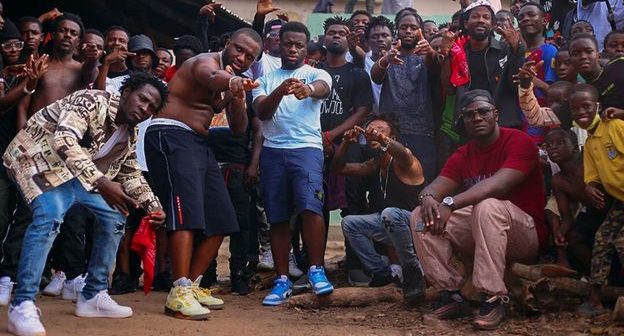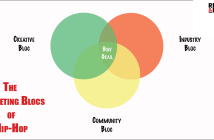Without a doubt, hip-hop is one of the fastest-growing musical genres in the world. A cultural and artistic movement that originated in the United States, that has found a vibrant home in Nigeria. This genre has created an avenue for Nigerian youths to not only be empowered but voice their experiences, opinions, and aspirations, leading to a profound transformation of the socio-cultural landscape.
Hip-hop first emerged in Nigeria during the late 1980s and early 90s. Lagos State in Nigeria was the first place hip hop gained popularity. During this time (the 1980s), Nigeria was under a military governorship. This period of military governorship brought about the crisis in Nigeria which involved the devaluation of the currency, loss of jobs, and persistent unemployment, especially for new graduates from the University.
Hip-hop resonated deeply with Nigerian youths, providing another means of self-expression that wasn’t confined to societal norms. The youths at the time used hip-hop as a means of escape from the country’s crisis, they were becoming independent of the government by being lucrative and creating jobs by themselves through making records and selling CDs. The works of Groups and solo artists like Ruggedman, Mode 9, and Remedies, comprising Eedris Abdulkareem, Tony Tetuila, and Eddy Remedy were gradually gaining traction. This was one way they chose to be creative and not depend on the government.
Hip-hop was used for entertainment, and also to criticise the government and demand change. The late 90s and the early years of the new millennium saw an outburst of artists and groups, many returning home from the diaspora, like eLDee da Don of Trybesmen, JJC and the 419 squad, Naeto C became a part of mainstream Nigerian music. These fast-rising artists in Nigeria began to localise hip-hop and make songs in English and other Nigerian languages as a means of self-expression, thus making Nigerian hip-hop multi-tongued.
Just as it was done in Nollywood, where you have movies that are transcribed in the local dialects, the Musicians started making multilingual hip-hop music and the lyrics were usually in English, Pidgin English, and other Nigerian languages such as Yoruba, Igbo, and Hausa.
Empowerment through Authentic Storytelling
One of the most significant ways hip-hop has impacted Nigerian youths is through authentic storytelling. Hip-hop gives Nigerian youths a space to vent, process, and grow. They write authentic stories and unique perspectives about their personal problems, unsavory issues happening in the country, relationships, and aspirations.
It creates an avenue for self-expression whereby they can write their personal narratives, and challenge their thoughts, and become true agents of change. This is clearly seen in their sounds, musicians often address socio-economic challenges, political corruption, and issues facing Nigerian youths, reflecting the experiences of their audience. It allows them to communicate their struggles, triumphs, and aspirations in a language that resonates with their peers.
Through their music, youths shed light on pressing issues happening in and around the country and offer a fresh perspective on current realities.
Fostering Creativity and Entrepreneurship
Hip hop not only serves as a form of artistic expression but also as a catalyst for creativity and nurturing entrepreneurship among Nigerian youths. Many artistes have found opportunities to be empowered through various aspects of hip-hop culture, such as music production, fashion, dance, multimedia, and other creative industries.
The rise of independent record labels, clothing brands, and creative collectives has created avenues for Nigerian youths to showcase their talents, generate income, and build sustainable careers within the hip-hop industry. The entrepreneurial spirit has provided an alternative pathway that is inspiring Nigerian youths to explore their talents and create avenues for economic self-sufficiency.
Digital Age and Global Reach
Social media have helped immensely in amplifying hip-hop’s impact on Nigerian youths being empowered and their self-expression. Social media platforms, streaming services, and online communities have facilitated greater visibility for Nigerian hip-hop artistes, allowing their messages to reach a global audience, which has helped to bolster their careers and elevate the issues they champion.
For example EndSARS, which was a youth movement to end police brutality in Nigeria, got the world’s attention because of the power that social media wields. The musicians that released songs about “End SARS Toll-Gate Massacre,” the unfortunate event that took place in Nigeria on October 20, 2020, like Falz, Burna Boy, Chike, and so many others got their message out there through social media, detailing the grim account of what happened that evening and making the world well aware of the ugly situation in Nigeria at the time.
Catalysing Social Change
Hip-hop’s influence goes beyond just singing, it has become a vehicle for social change. Nigerian music artistes are not just entertainers but also advocates for transformation. Through their music, they voice out pressing issues about election malpractice, social injustice, abject poverty caused by the high cost of living in the country, police brutality, gross neglect by the government, unemployment and so many other issues.
Chinagorom Onuoha known by his stage name as African China released a song titled Mr. President in 2006 to expose the illegal deeds of the police force, Timaya also released a song in 2007 titled Dem Mama emphasizing the way security agencies brutalize their citizens. Other activism-driven tracks such as Fela Kuti’s “Suffering and Smiling,” and Falz’s hit song “This is Nigeria” which was released in 2018 and later banned by NBC, citing reasons for a part of the song being “vulgar”, and “unfit for radio.” Other artists who have used their songs to address socio-political issues in Nigeria are eLDee, Eedris Abdulkareem, Ajebo Hustlers, Burna Boy, Falz, P-square, 2Baba, and more. These songs by Nigerian musicians have demonstrated the power of hip-hop as a catalyst for social and political awareness, motivating Nigerian youths to participate in demanding change from the government.
Conclusion
The ability of the musical genre to provide a platform for the youth to be empowered and express themselves has transformed the way Nigerian youths engage with their society. But there is more work to be done for the Nigerian youths to bridge the industry knowledge gaps and keep them empowered.
Big brands could take a cue from what TomTom (made by Cadbury Nigeria) is doing: creating platforms for the youth whereby they can access all the information they need about all the aspects of the music business.
Hip-hop guilds and academies should be created in different cities where youths are trained in song production, songwriting, voice training, music promotion, music copyrights, and more to help them achieve their full potential.
More hip-hop concerts, local contests, auditions, and competitions can be carried out to arouse their creativity. The government can get involved by partnering with private individuals to get the hip-hop guilds and Academies functioning properly, with incentives being given to keep them keen.
Check out our Education archive for music business and artistry knowledge.
To solidify the Hip-hop culture among Nigerian youths
- More writing camps should be organized in various cities in the country to make music writing better.
- More teachers should be brought into the Academies, hip-hop guilds, and writing camps to teach the rudiments of music.
- Online learning platforms that offer the relevant knowledge and skills needed to build successful careers in the entertainment industry should be developed.
With the prerequisite training on the Nigerian youths, I trust that
- More well-grounded musicians will emerge
- There will be a lot of improvement in music production in Nigeria
- More youths will be economically self-sufficient for themselves and others.
- The skills learned will be monetized




